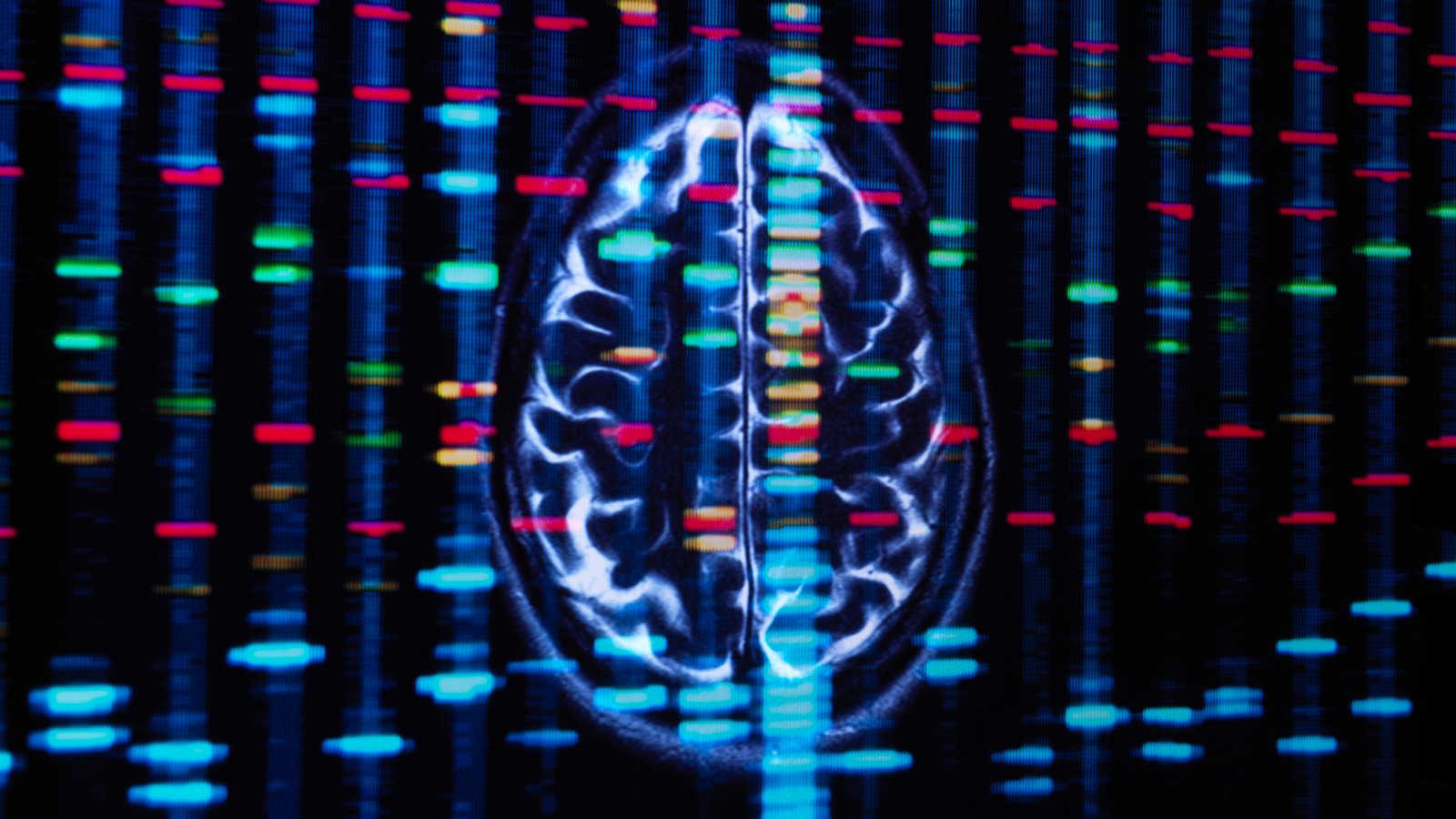Genetic Tests Debate: Is Too Much Info Bad for Your Health?
Hoping to find any disease susceptibilities lurking in her genes, 21-year-old Lee — who goes by the nickname "Zlyoga" on YouTube — spit into a container and posted a video of her salivary sampling on the popular site in December 2008.
"I think this is the coolest thing in the entire universe," she giddily said to the camera. "This is one of the best gifts I ever received — so much better than the bike I was going ask for."
Lee's parents had given her a mail-in genetic test. She completed the forms in the kit — then priced at a few hundred dollars — from California genetic-testing company 23andMe, enclosed the sample of her saliva, and sent it on its way.
Direct-to-consumer genetic tests have become increasingly popular since they first hit the market several years ago — in fact, 23andMe alone boasts of having more than 50,000 customers. Although the company does not release statistics about its actual growth, a spokewoman told MyHealthNewsDaily that "our database has grown steadily."
But there's been much debate over whether knowing the results is beneficial or harmful — and if they even give an accurate picture of a person's risk for certain diseases. [Related: 7 Diseases You Can Learn About from a Genetic Test]
Not the whole picture
When Lee received her results, she took to YouTube once again: "In some ways, reading the results felt like a horoscope," she said, sounding half-satisfied.
Get the world’s most fascinating discoveries delivered straight to your inbox.
The test revealed she indeed has blue eyes and, like both of her parents, has a low-tolerance for statin drugs, which are used to treat people with high cholesterol levels. However, she was surprised to learn a few diseases that run in her family posed little to no risk for her.
"I know [genetic testing] is still in its infancy, but how do I know any of this legitimate?" she said.
Others who have completed the 23andMe test have expressed similar concerns on YouTube: "It's all so vague; what does [higher risk] even mean?" asked "MelissaMich," after receiving her 23andMe results.
Not only may the results seem vague, they are just a snapshot of someone's genetic makeup, called single-nucleotide polymorphisms (or SNPs).
"Imagine that the genome is a huge jigsaw puzzle, with many more pieces than we have ever seen in a puzzle before," said Dr. Andras Pellionisz, founder of HolGenTech, a genome interpretation software company. "Now, suppose someone gives you only 10 percent of the pieces."
By knowing your SNPs, you may "get lucky" and precisely learn your risk of some diseases, said Pellioniaz, who thinks the tests are a good idea. But, he said, the genetic picture is incomplete.
For example, the results don't factor in lifestyle choices. A person might be told he has a low risk of developing lung cancer, but if he smokes two packs a day, his chances of getting the disease increase.
Indeed, 23andMe is upfront about this on its site, stating that it provides genetic information and "not the sequence of your entire genome," nor does it perform predictive or diagnostic tests. The company acknowledges SNP information is difficult to interpret.
The uncertainty factor
UCLA sociology professor Stefan Timmermans, who studies the genetic testing of newborns, said that knowing too much puts stress on those who've taken the tests. In a recent study, Timmermans revealed how the newly mandated genetic screening of newborns for rare diseases is creating unexpected upheaval for families whose infants test positive for risk factors but show no immediate signs of any diseases.
"Although newborn screening undoubtedly saves lives, some families are thrown on a journey of great uncertainty," Timmermans said. "Rather than providing clear-cut diagnoses, screening of an entire population has created ambiguity about whether infants truly have a disease — and even what the disease is."
"Basically you're telling families of a newborn, 'Congratulations, but your child may have a rare genetic condition. We just don't know, and we don't know when we'll know,'" Timmermans said.
His study paints a picture of families caught in limbo as they wait months for conclusive evidence that their children are out of the woods for various conditions. In many cases, however, the test results never come, the study found. Instead, the children slowly outgrow their known risk factors for dozens of metabolic, endocrine or blood conditions But the effects linger.
"Years after, everything appears to be fine, parents are still very worried," Timmermans said.
Some families are so traumatized that they follow unwarranted and complicated treatment regimens, including waking their children up in the middle of the night, enforcing restrictive diets and limiting their contact with other people for years.
And the same lasting worries come with direct-to-consumer testing, Timmermans told MyHealthNewsDaily.
"Those types of tests are planting seeds in people's minds for something there isn't a lot of firm data about. The genetic information provided by direct-to-consumer tests by itself isn't enough; they also have to look at family history and what has actually developed."
Understanding the results
Mike Spear, a 56-year-old communications director from Calgary, Alberta, didn't know exactly what to make of his results. He found he had a high risk of age-related macular degeneration, which causes vision loss in old age, and became very concerned.
"When I saw my results on paper, it seemed impossible to distance myself from the fact that it was just an experiment," said Spear, who works for Genome Alberta, a not-for-profit genetics research funding organization.
Spear contacted a genetic counselor to gain more insight into the results' meaning.
"The counselor explained that just because I'm at risk for certain conditions, it doesn't mean it's going to turn into anything," Spear told MyHealthNewsDaily. "I also started to be proactive and go to the eye doctor more."
The company 23andMe offers counseling services and gives customers access to its online community, where people can chat about their results, for an additional fee.
But not everyone who participates in the tests reaches out to genetic counselors who can help explain the results, said Dr. Christopher Tsai, director of clinical informatics of Generation Health, a genetic-testing benefits firm. And this is another place problems rise.
Further interpretation
The interpretation of the results is an increasingly central challenge to genetic testing, Tsai said, and the power to analyze the genome has outpaced the ability to interpret the results.
"Even trained geneticists disagree on how results should be interpreted and used to guide care," Tsai said. "The results can certainly be empowering if they lead to concrete actions that the patient can take. Even in terms of lifestyle, there is some evidence that genetics influence people's response to diet and exercise, and this information can guide their lifestyle changes."
According to a 2009 survey conducted by the National Institutes of Health, about 78 percent of respondents said they would change their diet and exercise habits if their results showed a higher risk of cardiovascular disease.
However, some diagnoses seem to only bring bad news, Tsai warned.
For example, a test can predict if someone will develop Huntington's disease — a devastating neurological condition with no cure. It's common for people to develop depression when given such results.
"Understanding the value of genetic tests, and when [and] where to use them in the health care system, is becoming an increasing focus of the health care industry," Tsai said.
FDA crackdown
It is for this reason the Food and Drug Administration is increasingly scrutinizing direct-to-consumer genetic-testing companies, Tsai said.
Critics of the tests worry about the safety of consumers who base important lifestyle or medical decisions on inaccurate or misunderstood test results.
"The risk is what people may do in response to the tests — some may suffer psychological harm or feel dread about their future health risks," said Barbara J. Evans, co-director of the Health Law & Policy Institute at the University of Houston Law Center.
"People sometimes pursue ill-advised medical interventions that may actually cause them harm. They may be unaware that these tests can produce false positives and false negatives, and even when people do have a 'bad' gene that does not necessarily imply that the gene will ultimately make them sick. People's futures depend on many, many factors other than their genes," Evans said.
Evans said the solution will require studies to be done before tests enter the market, and ongoing evaluations to see how well they perform once they are in use.
About 90 percent of genetic tests available in the United States have never been through a regulatory review of how safe they are or how much they improve health, she said. Most experts agree such review is needed, but solutions have been mired in the controversies surrounding the tests.
There are practical barriers to forcing all genetic tests to undergo the same sort of review the FDA requires for other medical products, such as drugs. The obstacles include lack of data, the short commercial lives of test products and the difficulty of assessing products that make long-term predictions.
Evans said making genetic tests as safe and effective as they can be will require close coordination among the FDA, state agencies, professional groups and other private-sector overseers.
"Resolving the lingering unknowns about genetic tests will require more data, and getting more data will require a commitment of resources," Evans said. "And make no mistake, having better data about genetic tests will only improve the public's health if the data are communicated in a timely and understandable way to the public."
- 7 Diseases You Can Learn About From a Genetic Test
- 3 Lifestyle Choices Lower Breast Cancer Risk, Regardless of Family History
- 7 Health Woes Brought on by Winter
Samantha Murphy is a senior staff writer for TechNewsDaily, a sister site to MyHealthNewsDaily. Follow her on Twitter @SamMurphy_TMN.



